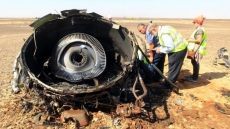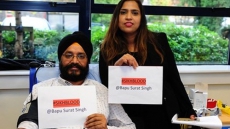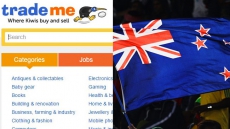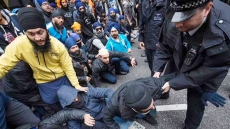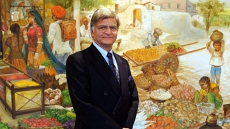A local school auditorium was converted for a few hours into mini-India for Diwali celebrations hosted by the city of Aurora, the second largest city in the US state of Illinois.
Over 4,000 people, mostly Indian-Americans, in traditional attire, attended the event organised by the Indian-American Community Outreach Board of the city.
The guests were treated to an eclectic collection of performances ranging from vignettes from the Ramayana to semi-classical and Bollywood dances expertly performed by amateurs, many of them second generation Indian-Americans.
The fast paced cultural extravaganza entertained the crowd of over 4,000, while serving as an introduction to India’s mythological and cultural heritage for US-born Indians and non-Indians.
Cuisines from various Indian states and traditional Indian apparel and jewellery provided a feast for the eyes and palate.
A video presentation projected glimpses of Indian history and culture. Aurora Mayor Tom Weisner lit the traditional lamp inaugurating the event, which started with Ganesh aaradhana (invocation) and included a Bharat Natyam performance on ‘Rama Ravana’, depicting the slaying of the demon king.
Mayor Weisner, whose unstinted support led to the city hosting the first Diwali event last year, appeared visibly pleased at the success of the event, as well as the contribution of the Indian-American community to the cultural fabric of the city.
“Indian-Americans have enriched the city with their unique contribution to music, dance and cuisine,” he said.
Other elected officials endorsed him. US Congressman Bill Foster said that Diwali reminded Americans of how multiple cultures have contributed to the American heritage.
Among those attending were two members of the state legislature, the Indian consul general and several aldermen.
Krishna Bansal, the chairman of the board, noted that it was fitting that Diwali, the festival of lights should be celebrated by Aurora, the city of lights. Aurora, named after the goddess of dawn was the first city in the US to have public electric lights.
“Diwali, which symbolises the victory of light over darkness, or the triumph of virtue over evil, has assumed greater relevance in a world torn by division and strife,” he said.
The Diwali event was held a few days before the actual Diwali on November 11, taking into account Chicago area's unpredictable cold in November, that could have prevented the outdoor fireworks display, the concluding part of the celebrations.
The event was seen as much a celebration of India’s culture as an acknowledgement of how well the Indian community has assimilated into the suburb.
Although Indian-American immigration to Aurora and the neighbouring Chicago suburbs is relatively recent, Indian-Americans have quickly made a mark by contributing significantly to the fields of business, academics, medicine and technology.
Diwali was first celebrated in the White House in 2003 and was given official status by the US Congress in 2007 with push from former president George W. Bush. Barack Obama became the first president to personally attend Diwali celebrations at the White House in 2009.
Members of the Aurora Indian-American Board and scores of volunteers toiled for months to make the event a success. Many of the volunteers were professionals in the fields of information technology and finance.
Not surprisingly, technology played a critical role in the organising efforts. Marketing strategies involved power point presentations, meticulous floor plans and extensive meetings with city officials and fire marshals.
The traditional Indian ‘diyas’, a fire hazard, were ruled out.
Different sections of the audience had a different take out from the event. For those not of Indian descent and US-born Indians, the exotic nature of the dances overshadowed everything else. While the older generation appreciated the ‘abhinaya’ (histrionics) of the ‘Rama Ravana’ performance.
A six-year-old Indian-American announced that he was fascinated by the ten-headed Ravana, because he “looks really cool”.
